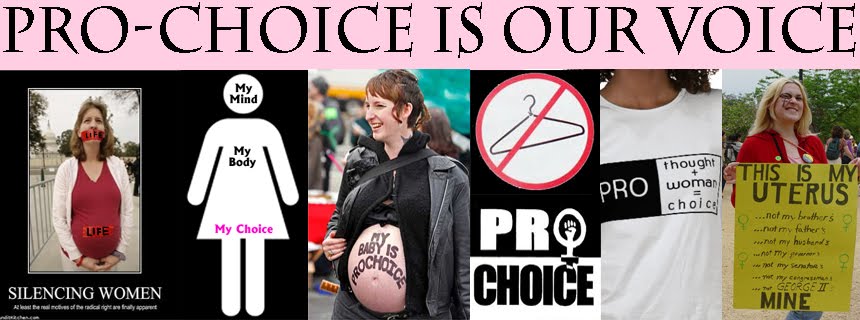Fact: Unintended pregnancy can happen to anyone, because there is no contraceptive that can give you an absolute 100% guarantee that pregnancy will not happen. If a woman actually was using abortion as a method of birth control, according to NAF's research, a woman would need between 2 and 3 a year to prevent all the incidences of pregnancy. Women who need abortions are not all young and frivolously irresponsible, though it is true that more women who want abortions are not married. According to research, half of the women who need abortions report that contraceptives were used when they got pregnant and needed the abortion. (Source: NAF)
Myth: Women need mandatory waiting periods to make sure they really want abortions.
Fact: NAF says that "Research indicates that relief is the most common emotional response following abortion, and that psychological distress appears to be greatest before, rather than after, an abortion." According to this article written by a long-time abortion provider, women don't just frivolously pop in to get an abortion, but rather they seriously consider it from the moment they realize they're pregnant. Waiting periods just add to the inconvenience, and make it that much more difficult for a woman to get an abortion.
Myth: Women who have abortions are selfish.
Fact: Women who desire abortions know the extent of the physical and potentially life-changing ramifications of having a child. Many women feel that, for either financial or psychological reasons (like not being mature enough) they are not ready for a child. Other reasons, such as being victims of rape or incest, also come into consideration. It is a complicated decision that usually involves many factors.
Myth: Adoption is a better alternative to abortion.
Fact: Some groups, like this one, insist that adoption is a better alternative than abortion. However, they all fail to mention that a woman still has to give up her body for 9 months to carry the fetus before giving birth (which is painful and scary) then only to know for the rest of her life that her child is somewhere in the world. They often harp on a woman knowing for the rest of her life that she's "killed her child" if she gets an abortion. But if she gives her baby up for adoption, that's a child of hers that she'll always know is out there somewhere--both are psychological perspectives to consider and one should not be considered more or less important (or easier or harder to deal with) than the other. The simple truth is that while adoption is a viable option for some women, for others it is not, and they need the right to make that decision for themselves.
Myth: God will hate you and/or send you to Hell for getting an abortion.
Fact: Nobody can tell you what you should or should not get out of your religion. The answer to this one lies in a personal connection with religion that someone working in a Crisis Pregnancy Center cannot give to you. This is an extremely personal belief that lies within the individual woman. Can I stress it enough? It's personal, something for each woman to decide for herself in the way that she is most comfortable with, without outside pressures that have an agenda weighing in.
--Alexandra
